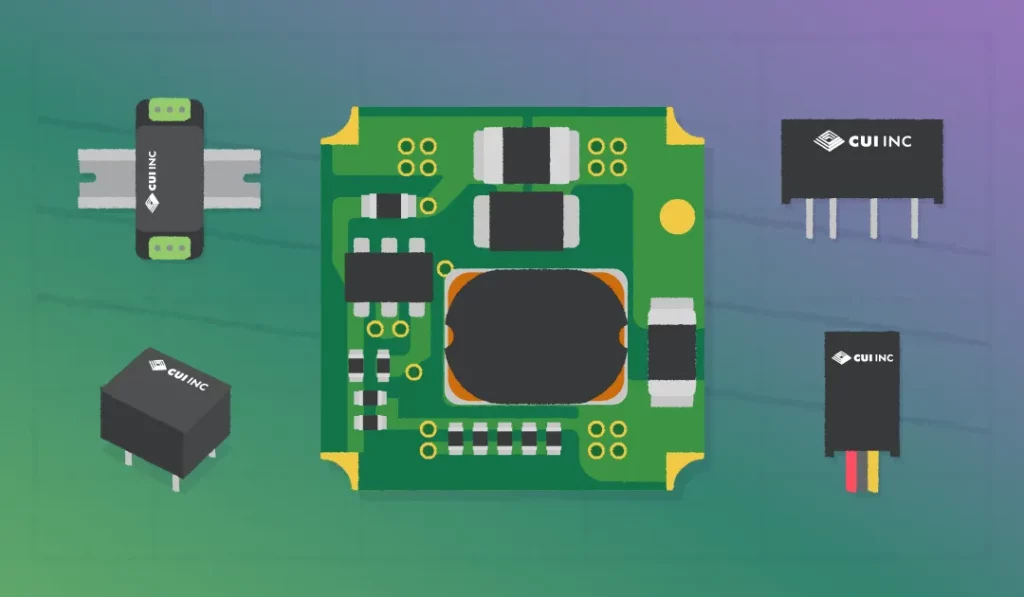
How to Select a Dc-Dc Converter
As with most power sources, the output load power needs of the system must be determined before choosing a dc-dc converter. The output requirements of the Industrial DC-DC Converter comprise the converter’s output voltage and current. Depending on environmental variables such as input voltage, output load current, ambient temperature, etc., the output voltage may be subject to tolerance requirements. The load current specification requirements should contain minimum, maximum, and average values.
Input voltages are not standardized for dc-dc converter applications, unlike ac-dc supply. When choosing a dc-dc converter, it is required to define the range of input voltages.
Comparison of Isolated and Non-isolated Configurations
Both isolated and non-isolated variants of dc-dc converters are available. The input and output circuits of isolated converters are galvanically separated; there is no dc channel between the input and output. These converters often isolate input and output circuits from electrical noise or hazardous voltage. There are isolated converters with numerous output voltages from a single converter.
Separated convertor
Like ac-dc supplies, most Industrial DC-DC Converter generates a closely controlled output voltage. Smaller or less costly converters may be employed for applications that can accept an unregulated output voltage. Typically, only low-power converters allow for choosing a regulated or unregulated output voltage.
Packaging and Mounting Alternatives
DC-DC converters are available in several mounting and packaging configurations. In situations where the converter will be installed directly on a PCB, surface mounting (SMT), through-hole mounting (THM), and single in-line pin (SIP) or dual in-line pin (DIP) variants are available.
There are available chassis-mounted converters for applications needing this kind of attachment. For industrial applications, several converters are available in DIN rail mount designs. Open-frame and enclosed converters are available in most packaging and mounting options.
EMC and EMI Issues
Most commercially available electronic goods must comply with EMI and EMC (Electromagnetic Interference and Electromagnetic Compatibility) regulations. The objectives of the regulatory standards are to guarantee that the goods do not interfere with the operation of other products and that external electrical noise does not impede the correct functioning of authorized items. To be compliant with regulatory standards, dc-dc converters may be certified; however, in most instances, the whole system is certified and the internal sub-circuits do not need certification.
Safety Prerequisites
Like EMI and EMC regulatory standards, most marketed electronic equipment must also comply with safety regulations. As with EMI and EMC regulatory certification, items get safety certification for the end product; certification for internal subcomponents is often not needed but may be acquired if necessary.
It should be noted that dc-dc converters with input voltage ratings of 75 V or above supplied in the EU and the UK need safety certifications; please contact your sales representative for requirements in other regions. If dc-dc converters are used to isolate product users from dangerous voltages, safety certifications should also be acquired for the converters.
Additional Attributes
In addition to the qualities above of Industrial DC-DC Converter, other aspects may be advantageous or essential in product designs. Using external resistors, some converters enable the designer to modify the output voltage. To adjust voltage dips in the conductors between the output of the converter and the load, high-power converters often incorporate load voltage sensing terminals. Including remote on/off capabilities enables the designer to activate or disable the converter’s output voltage electronically.
Conclusion
Understanding the fundamental challenges involved with dc-dc converters helps facilitate the selection of these components. In choosing converters, there may be other factors beyond those listed above. By collaborating with an experienced power supply provider, such as CUI, the effort necessary to complete the selection process may be decreased, and the most effective dc-dc converters can be discovered.
With a solid foundation in technology, backed by a BIT degree, Lucas Noah has carved a niche for himself in the world of content creation and digital storytelling. Currently lending his expertise to Creative Outrank LLC and Oceana Express LLC, Lucas has become a... Read more